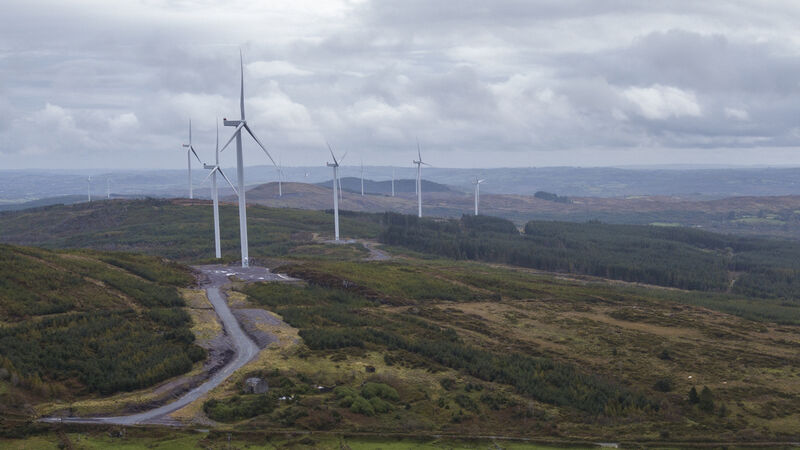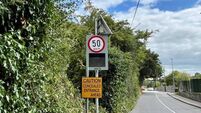Planning board overturn Cork County Council's refusal of windfarm planning at scenic Gougane Barra

This wind farm at Derrach, West Cork is just one of many windfarms that surround Gougane Barra, West Cork. Picture Dan Linehan
An Bord Pleanála has overturned Cork County Council’s planning refusal for a windfarm near scenic Gougane Barra, against the recommendation of its own planning inspector.
In 2020 the county council rejected the application by Wingleaf Ltd, an affiliate company of Lissarda-based Enerco Energy, whose directors are Michael and David Murnane, for permission to develop the windfarm at Curraglass, close to the Pass of Keimaneigh.
An Bord Pleanála has now granted, subject to conditions, a 10-year planning permission for a windfarm of seven turbines, with a 30-year operational life.
The turbines will have an overall blade tip height of up to 178.5 metres, their “excessive height” having been one of the grounds on which permission was originally denied by the county council.
The council had also said that the development would materially contravene the objectives of the Cork County Development Plan and “would be excessively domineering from very many vantage points over a wide area”.
The windfarm would, the initial refusal stated, “provide for a highly intrusive, visually domineering form of development that debases the integrity and the landscape character”.
Senior planning inspector Kevin Moore, in his report for An Bord Pleanála, also recommended that permission be refused.
“This is a development that would have significant adverse environmental and visual impacts and is not sustainable at this highly sensitive location,” Mr Moore stated.
In its order granting permission, however, An Bord Pleanála upheld Wingleaf’s appeal, lodged in September 2020, and said the windfarm would “make a positive contribution to the implementation of Ireland’s national strategic policy on renewable energy and its move to a low energy carbon future”.
Balancing the need for green energy versus the impact on the landscape surrounding the windfarm, which will be less than 3km from Gougane Barra, the board said the development would “have an acceptable impact on the landscape having regard to its overall benefits” and would “not seriously injure the residential or visual amenities of the area or of property in the vicinity”.
In deciding not to accept the inspector’s recommendation to refuse permission, the board cited existing “significant man-made interventions in the landscape, including commercial forestry and agriculture”.
It said it “did not agree that the proposed development would detract from the existing character of the area, undermine the setting of Gougane Barra and the framing of the town of Bantry, erode the landscape and visual quality of the coastal and designated scenic routes in the vicinity… or conflict with the objectives set out in the Cork County Development Plan 2014, to such a degree as would warrant refusal of permission”.
An Bord Pleanála’s view was that the “main significant direct and indirect effects” of the development on the environment would be the potential for direct impact on the Kerry slug species present on the site, and on water quality, soils, air, and the public road network arising from construction works”.
In addition to the appeal to An Bord Pleanála made by Wingleaf, a second appeal was made by members of the community in nearby Béal Átha ’n Ghaorthaidh, in the name of Tadhg Ó Duinnín, chairperson of the village’s development committee, Coiste Forbartha Béal Átha ’n Ghaorthaidh, against the grounds on which Cork County Council refused planning permission.
With seven separate windfarms now either operational or in development in proximity to the Gaeltacht village, Mr Ó Duinnín had described Béal Átha ’n Ghaorthaidh as being “absolutely surrounded” by turbines “in a 360 degree radius around us”.
The committee was particularly concerned about the possibility of fire and toxic smoke hazards in relation to four battery storage containers which formed part of the windfarm application and it highlighted the fact that these issues did not feature among the county council’s reasons for planning refusal.
Though concerns relating to shadow flicker, possible interference with telecommunications signals, and bird habitats were addressed by An Bord Pleanála, little mention was made of the battery storage units, which were granted permission, along with an 38kV electricity substation.







 App?
App?


